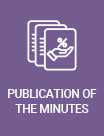The Board of Directors of Banco de la República increased the benchmark interest rate by 25 basis points
The Board of Directors of Banco de la República at today’s meeting decided to increase the benchmark interest rate by 25 bp to 6.25%. For this decision, the Board mainly took into account the following aspects:
- Annual consumer inflation in January stood at 7.45%, and the average of core inflation indicators posted at 5.73%, surpassing the forecasts of the technical staff at the Central Bank. The measures of inflation expectations remain high: those by analysts to one and two years registered 4.5% and 3.7%, respectively, while those embedded in public debt bonds to 2, 3, and 5 years are between 4.5% and 5.0%.
- The increase in food prices as well as the higher nominal depreciation and its partial pass-through to consumer prices explain the increase in inflation in January. Although they are considered temporary shocks, the magnitude of the depreciation of the peso and the intensity of El Niño increase the risk of a slower convergence of inflation to the target, due to its direct impact on prices and inflation expectations as well as by the probable triggering of indexation mechanisms.
- The price of oil is still volatile and remains below the forecasts for this year. Global risk aversion has increased. In this environment, the largest economies of Latin America recorded once more increases in their risk premia and their currencies depreciated vis-à-vis the US dollar.
- The most recent information on global economic activity suggests that in 2015 the average economic growth of Colombia's trading partners was weak, and the forecast for 2016 suggests that its recovery will be somewhat slower than expected.
- New declines in oil prices continue deteriorating the terms of trade and are reflected in a further fall of the national income and, especially, of public revenue. Given that part of this fall is long-lasting, a permanent adjustment of domestic spending in the economy is required, for which fiscal policy measures are the most effective instrument. In this sense, the announced cuts in public expenditure and the firm commitment of the Government to submit a structural tax reform in 2016 are necessary measures for the economy to adjust to the new income levels.
- The most recent figures of economic activity suggest that output growth in the fourth quarter of 2015 would have been similar to that recorded in the third quarter. The dynamism of consumption and investment would have been lower, but net exports would have contributed positively to growth. For all of 2015, economic growth is projected at 3.0% as the most likely figure, within a range between 2.8% and 3.2%.
- In January, the Consumer Confidence Index declined significantly, registering a historically low level. However, uncertainty about the persistence of this low level of the indicator and its impact on household spending is high. Other indicators of economic activity are compatible with the technical staff's growth forecast for 2016 (2.7% as the most likely figure, within a range between 1.5% and 3.2%).
In summary, higher-than-expected increases in food prices and further increases in the exchange rate, largely related to the fall in the price of oil, continue exerting upside inflationary pressures. Inflation expectations remain high and an additional pass-through of the devaluation of the peso to domestic prices is foreseeable.
The Board of Directors decided to continue with the path of 25 bp increases of the benchmark interest rate, and will be particularly attentive to the behavior of inflation and its expectations in order to ensure convergence of inflation to its target in 2017. At the same time, the cuts announced in public spending and the firm commitment of the National Government to submit a structural tax reform this year, contribute to reduce the current account deficit and inflationary pressures.
On the other hand, with the purpose of mitigating the impact of an overreaction of the exchange rate on inflation expectations and contributing to preserve the conditions of liquidity of the foreign exchange market, the Board decided to modify the percentage for the activation of the auction of options to decumulate international reserves and their exercise from 5.0% to 3.0%. The other conditions of the mechanism remained unaltered.
The Board reiterates its commitment to the inflation target and continues to carefully monitor the behavior and projections of economic activity and inflation in the country, as well as that of asset markets and the international situation.
Bogotá,














.png)

































